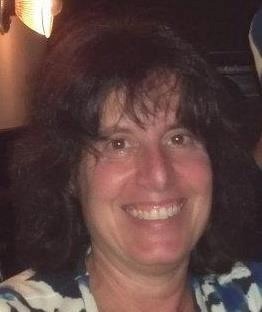Miriam’s musings: The P-Word
Why does pre-Pesach preparation put me in as bad a mood as a doctor’s
appointment?
Why does this beautiful holiday give me a headache?
Why does this festival require such great expense and effort?
Why does the 15 of Nissan always come too early or too late?
These are just four of my questions as I get real about the upcoming holiday which I call the P word, as I like to euphemize it.
The initial “P” obviously doesn’t refer to the holiday which we recently celebrated which is mostly fun and light hearted and delicious. It refers of course to the festival which celebrates freedom, yet enslaves us to the kitchen for grueling hours of back-breaking eye-straining cleanup.
This is followed by exorbitantly priced shopping for highly supervised and restricted food products, retrieving heavy boxes of kitchenware stored in the basement for eleven months, engaging in multiple hours of cooking, setting up tables and chairs for crowds, and finally, finally sitting down to enjoy the fruits of our labor. At the end of the day, I do believe this huge effort
is worthwhile.
Once we take our assigned places around the gleaming white covered tables, open up our Haggadot and bless and drink the first glass of wine, I know I will relax and smile again. My view from one corner of the room to the other takes in our nearest and dearest. We have all rushed and prepared to get here and are hungry and eager to begin.
All are poised to reenact this age old ritual with its myriad rules and traditions, but which also allows for new insights, interpretations and tunes. Each year we anticipate tasting the crunchy, burnt shmura matzot, the freshly grated horseradish and my mom’s incredible gefilte fish.
The first part of the readings sounded endless when we were kids but seems to fly by now. Last year, our sons assumed the responsibility of running one seder and this has injected delightful new life into the evening’s program. Everyone still participates in his or her unique way by reading in various languages or discussing a recently learned idea. Each family member enhances the telling of the tale by bringing his or her individual personality to the telling of the story.
I remember my paternal grandfather,
Yechezkiel (Abuelo Julio) running the
seder in his apartment in Crown Heights in
the late 1960s. His seder was a monol-
ogue, read at break-neck speed in Yiddish-
infle-cted Hebrew.
Later on, in Midwood, my maternal grandfather Leipke (Abuelo Leon) helped along. They stopped only for us kids to nervously sing MaNishtana, to gorge on the abundant meal and then finally to end the seder with a joyous version of Had Gadya. The actual Haggadah recitation involved a long litany of guttural sounds, which I can only guess was reminiscent of the way they had heard and experienced it so long ago in Poland and Russia. We kids couldn’t wait for permission to dig into the festive meal, prepared solely by my grandmother.
When that generation passed on, my father reluctantly took up the responsibilities of the seders. He feared filling those Eastern European shoes, but then beautifully brought his own sensibilities and understan-
ding to the holiday, including each atten-
dant’s participation.
For many years, my mom single-handedly created the delicious feast. When our family grew, expanding beyond the confines of their small Brooklyn dining room, my dad happily handed the seder baton down the line to his daughters and sons-in-law.
We each took one night, and our tradition evolved to encourage sharing the cooking duties, dividing that awesome task between my mom, my sister and me. We continue having a leader but increased the involvement of the kids. With more room in the suburbs, we added guests, extended family and our kids’ friends. Now our children are leading the first night seder with the help of everyone’s input, continuing the natural flow of
the generations.
Each holiday brings with it blessings, traditions, rituals, but Pesach is imbued with more work, involvement, gravity. Shuls schedule special sessions for discussing minute details about this holiday’s observance, the OU mails us pamphlets listing the acceptable ingredients, brand new Haggadot are published each year. Reciting prayers as we search for chametz at night and burn it the following morning brings a heightened awareness to the importance of the eight days ahead.
Passover is another beginning of the Jewish calendar year. Each March I curse the exhausting work demanded by this holiday which I have only just begun to tackle. Every Nissan new moon brings me a bittersweet feeling, sadness for ending the previous year and wonderment about the year ahead. I feel that we are honoring my grandparents by having our children lead the seder.
Somehow this is best expressed by my favorite blessing of this and every Jewish holiday, the Shehecheyanu. As I light the candles I’ll thank G-d for having kept me alive and well and brought me to this day.
As I look across my decorated table on Shabbat, April 6, I will take a deep breath and be deeply grateful once again for whom and what I have.
Miriam was born in Cuba, raised in Brooklyn and lives in Woodmere. She reviews books for Jewish Book World, organizes author events for Hadassah and teaches private and group yoga. Contact Miriam at
mimiyoga27@gmail.com.

 66.0°,
Overcast and Breezy
66.0°,
Overcast and Breezy 




